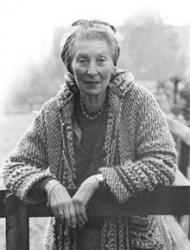1621 - 1695 Person Name: Henry Vaughan, 1622-95 Author of "King of mercy, King of love" in The Cambridge Hymnal Vaughan, Henry, M.D., commonly called "The Silurist," was one of twin brothers born of a titled family at Newton, Llansaintffiad, in 1621. After studying under the Rev. Matthew Herbert, Rector of Llangattock, he proceeded to Jesus College, Oxford, in 1638; but through the national troubles of those days, his studies, in common with those of his brother, were interrupted, and they had to leave the University. Subsequently he entered the medical profession, and practised at Brecon and at Newton. He died April 23, 1695. His published works include, Poems with the Tenth Satire of Juvenal Englished, 1646; Olor Iscanus, 1651; The Mount of Olives, 1652, &c. As a religious poet he followed very closely the peculiarities of George Herbert, of whose writings he was a great admirer. His best and most devotional poems were written during a severe affliction, and were published in his Silex Scintillans. After being almost forgotten for more than 200 years, his quaint, thoughtful, devotional, and, in many instances, beautiful poems, are receiving attention at the hands of hymnal compilers and others.
From the Silex Scintillans several pieces have been taken as hymns for public worship. The following, all from the first edition of 1650, are in common use:—
1. As travellers when the twilight's come. Life a Pilgrimage.
2. Bright shadows of true rest! some shoots of bliss. Sundays. Sometimes as "Types of eternal rest, fair buds of bliss."
3. Joy of my life, while left me here. Guiding Stars.
4. King of mercy, King of love. God our King.
5. Lord, with what courage and delight. Cheerfulness.
6. My. God and King, to Thee I bow my knee. Lent.
7. Since in a land not barren still. Love and Discipline.
8. Up to those bright and gladsome hills. Ps. cxxi.
9. What needs a conscience, clear and bright? Conscience.
10. When one loud blast shall rend the deep. Advent. Judgment.
11. Zion's true glorious God! on Thee. Praise.
Of Vaughan's hymns the most widely used are:— "Bright Queen of heaven," "My soul, there is a countrie," and "Up to these bright and gladsome hills."
--Excerpts from John Julian, Dictionary of Hymnology (1907)
=====================
Vaughan, H., p. 1206, i. Nos. 6, 9, 11, are from the 2nd ed., 1655 of his Silex Scintillans, pt. ii., pp. 60, 40, 68. No. 10 is from "When through the North," &c, in the 1st ed. 1650, p. 13.
--John Julian, Dictionary of Hymnology, New Supplement (1907)
Henry Vaughan


